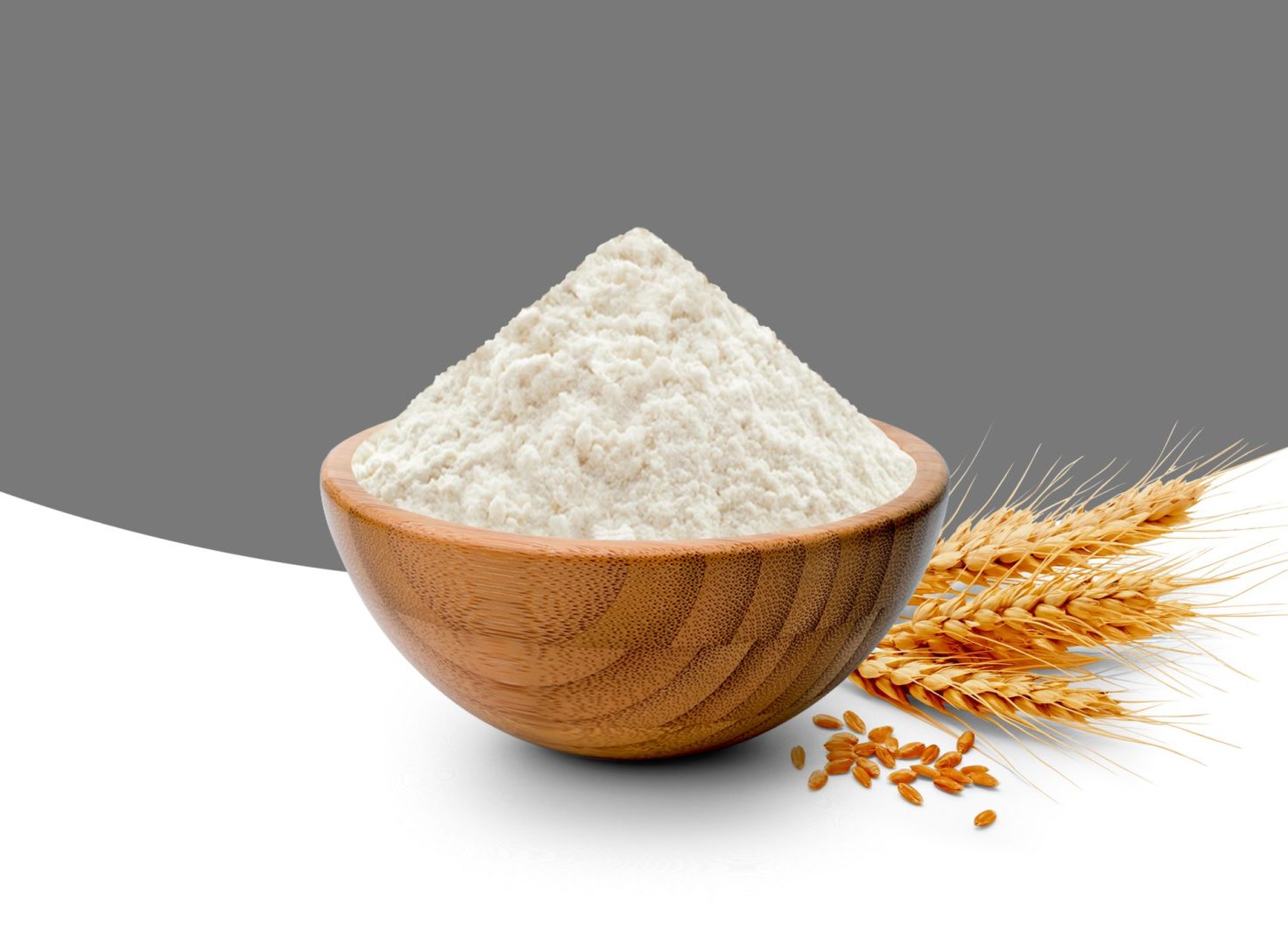Millions of people experience uncomfortable digestive symptoms after eating wheat products, yet many don’t understand why their bodies react so negatively to foods their ancestors consumed for thousands of years. The struggle to digest wheat has become increasingly common, leaving people confused about whether they have celiac disease, gluten sensitivity, or something else entirely.
The relationship between wheat and digestive health involves far more complexity than simply having or not having celiac disease. Multiple factors can interfere with your body’s ability to process wheat effectively, from changes in how wheat is grown and processed to alterations in your digestive system’s ability to handle certain proteins and carbohydrates.
Understanding these various factors can help explain why you might experience bloating, stomach pain, fatigue, or other uncomfortable symptoms after consuming wheat products. Many of these issues have practical solutions that don’t require completely eliminating wheat from your diet, though some people may find that avoidance remains their best option.
Modern wheat differs significantly from varieties consumed historically, and our digestive systems may not have adapted to handle these changes effectively. Additionally, our lifestyles and eating patterns create conditions that can interfere with proper wheat digestion, even in people who previously tolerated it well.
1. Modern wheat processing removes digestive aids naturally present in whole grains
Traditional wheat processing methods preserved many compounds that aided digestion, but modern industrial processing strips away these beneficial elements. The refining process that creates white flour removes the bran and germ portions of wheat kernels, which contain enzymes and fiber that support proper digestion.
These natural enzymes help break down complex carbohydrates and proteins in wheat, making them easier for your digestive system to process. Without these aids, your body must work harder to digest wheat products, potentially leading to incomplete digestion and uncomfortable symptoms.
The fiber removed during processing also plays a crucial role in healthy digestion by slowing absorption, feeding beneficial gut bacteria, and promoting regular bowel movements. Refined wheat products lack this fiber, creating rapid spikes in blood sugar and leaving beneficial bacteria without adequate nutrition.
Additionally, modern processing often involves chemical treatments and additives that can irritate sensitive digestive systems. These processing aids may remain in finished products at levels that cause problems for people with compromised gut health or chemical sensitivities.
2. Compromised gut bacteria from antibiotics and processed foods
Your intestinal bacteria play a vital role in digesting wheat and other complex carbohydrates, but modern lifestyle factors can severely compromise these beneficial microorganisms. Antibiotic use, while sometimes necessary, can wipe out populations of helpful bacteria that assist with wheat digestion.
Processed foods, artificial sweeteners, and food additives can further disrupt gut bacteria balance, reducing your digestive system’s ability to handle wheat effectively. Without adequate populations of beneficial bacteria, partially digested wheat components can ferment in your intestines, causing gas, bloating, and discomfort.
Stress, poor sleep, and excessive alcohol consumption also negatively impact gut bacteria populations. These lifestyle factors create an environment where harmful bacteria can flourish while beneficial species struggle to survive, compromising your ability to digest wheat and other complex foods.
The modern diet often lacks the diverse plant fibers that feed beneficial gut bacteria, further compromising their populations. Without adequate nutrition, these bacteria cannot perform their digestive functions effectively, leaving you more susceptible to wheat-related digestive problems.
3. Increased gluten content in modern wheat varieties
Modern wheat varieties have been bred to contain higher levels of gluten proteins compared to historical varieties, creating challenges for digestive systems not adapted to handle these increased concentrations. This selective breeding aimed to improve baking properties but may have made wheat harder to digest for some people.
Gluten proteins can be particularly challenging to break down completely, and higher concentrations mean your digestive enzymes must work harder to process them effectively. Incomplete gluten digestion can lead to partially broken-down proteins reaching your intestines, where they may trigger inflammatory responses.
Some people produce insufficient amounts of the specific enzymes needed to break down gluten proteins completely. When faced with higher gluten concentrations in modern wheat, these individuals may experience more severe symptoms than they would with lower-gluten varieties.
The structure of gluten proteins in modern wheat may also differ from historical varieties in ways that make them more resistant to digestion. These structural changes could explain why some people who previously tolerated wheat well begin experiencing problems later in life.
4. Damaged intestinal lining preventing proper nutrient absorption
Various factors can damage the intestinal lining, creating a condition where partially digested wheat proteins and other substances can pass through the intestinal wall inappropriately. This increased intestinal permeability can trigger immune responses that manifest as digestive symptoms.
Non-steroidal anti-inflammatory drugs, commonly used pain relievers, can damage the intestinal lining over time. Regular use of these medications may make you more susceptible to wheat-related digestive problems even if you previously tolerated wheat well.
Chronic stress produces hormones that can compromise intestinal barrier function, making the gut lining more permeable to incompletely digested proteins. This stress-related damage can develop gradually, explaining why wheat tolerance might decrease during particularly stressful periods of life.
Infections, excessive alcohol consumption, and certain medications can also damage the intestinal lining. Once this protective barrier becomes compromised, foods that were previously well-tolerated may begin causing uncomfortable symptoms.
5. Insufficient stomach acid production hindering protein digestion
Adequate stomach acid is essential for beginning the digestion of wheat proteins, but many factors can reduce stomach acid production below optimal levels. Without sufficient acid, proteins remain partially undigested when they reach your intestines, potentially causing discomfort and inflammatory responses.
Age naturally reduces stomach acid production, which may explain why some people develop wheat intolerance later in life despite tolerating it well when younger. This age-related decline in acid production affects protein digestion across all foods but may be particularly problematic with complex proteins like those found in wheat.
Certain medications, particularly proton pump inhibitors used to treat acid reflux, can dramatically reduce stomach acid production. While these medications serve important purposes, their long-term use may contribute to wheat digestion problems by interfering with the initial breakdown of wheat proteins.
Chronic stress can also suppress stomach acid production, as your body prioritizes immediate survival needs over digestive functions during stressful periods. This stress-related reduction in acid production can make wheat digestion more challenging during difficult life circumstances.
6. Food combining habits that interfere with optimal digestion
The combination of foods eaten together can significantly impact digestion, and certain combinations may make wheat particularly difficult to process effectively. Eating wheat products with high-fat foods can slow digestion and create conditions where fermentation becomes more likely.
Consuming large amounts of liquid with wheat-containing meals can dilute digestive enzymes and stomach acid, reducing their effectiveness in breaking down wheat proteins and carbohydrates. This dilution effect can leave wheat partially digested when it reaches your intestines.
Eating wheat products when stressed or in a hurry can interfere with proper digestion by reducing blood flow to digestive organs and decreasing enzyme production. The sympathetic nervous system response to stress diverts resources away from digestion, making wheat harder to process effectively.
Combining wheat with foods that require different digestive environments can create conflicts that compromise overall digestive efficiency. Understanding these interactions can help you optimize your eating patterns to improve wheat tolerance.
7. Hidden food sensitivities masquerading as wheat intolerance
Many wheat products contain other ingredients that could be causing your digestive symptoms, leading to misidentification of wheat as the problematic food. Yeast, used in bread production, can cause significant digestive problems in people with yeast overgrowth or sensitivity.
Food additives commonly found in processed wheat products, including preservatives, emulsifiers, and flavor enhancers, can trigger digestive symptoms in sensitive individuals. These reactions may be mistakenly attributed to wheat when the actual culprit is an added ingredient.
Eggs, dairy products, and nuts frequently appear in wheat-containing foods and represent common allergens that could be responsible for digestive symptoms. Without careful elimination testing, it can be difficult to determine whether wheat or these other ingredients are causing problems.
Cross-contamination during processing can introduce allergens from other grains or foods into wheat products. People with sensitivities to corn, soy, or other common allergens might react to wheat products that have been contaminated during manufacturing or processing.
8. Timing and portion size overwhelming digestive capacity
Eating large portions of wheat products can overwhelm your digestive system’s capacity to process them effectively, leading to symptoms even in people who can tolerate smaller amounts. Your digestive enzymes and stomach acid production have limitations, and exceeding these limits can result in incomplete digestion.
Consuming wheat products late in the day when digestive function naturally slows can contribute to problems. Your body’s circadian rhythms affect enzyme production and digestive efficiency, making evening consumption of hard-to-digest foods more problematic.
Eating wheat products too frequently without allowing adequate time between meals can prevent complete digestion of previous meals. This can lead to accumulation of partially digested material that ferments and causes uncomfortable symptoms.
Rushing through meals or eating while distracted can interfere with proper chewing and initial digestion. Inadequate chewing means larger particles reach your stomach, requiring more work from digestive enzymes and potentially leading to incomplete breakdown of wheat components.
Improving wheat digestion naturally
Understanding these factors provides multiple avenues for improving your ability to digest wheat without necessarily eliminating it completely from your diet. Supporting gut health through probiotic foods, managing stress levels, and optimizing eating habits can significantly improve wheat tolerance.
Consider keeping a detailed food and symptom diary to identify specific patterns or triggers that worsen your wheat-related digestive problems. This information can help you determine whether timing, portion size, food combinations, or other factors contribute to your symptoms.
Gradually reintroducing wheat after a period of avoidance, while addressing underlying digestive health issues, may allow you to tolerate wheat products that previously caused problems. This approach requires patience and careful attention to your body’s responses.
Working with healthcare providers who understand the complexity of wheat digestion issues can provide personalized strategies for improving your tolerance while ensuring you don’t have underlying conditions requiring specific medical treatment.















